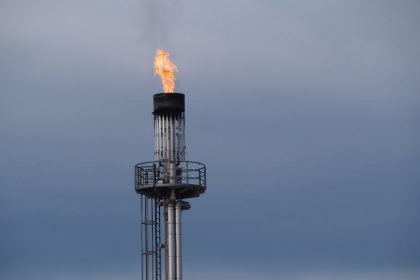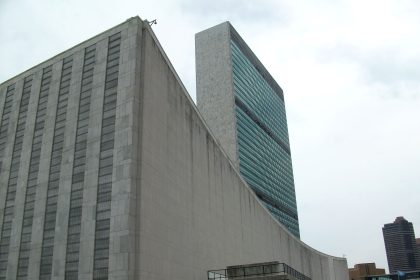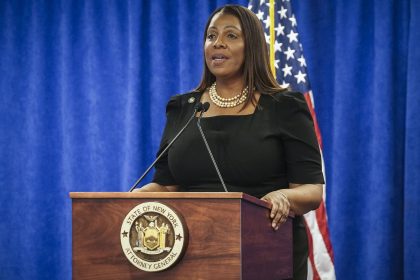DOJ Argues Trump Not Immune From Jan. 6 Liability Claims

WASHINGTON — Former President Donald Trump should not be able to claim executive immunity from liability claims arising from the Jan. 6, 2021, siege on the U.S. Capitol, the Justice Department said in a court filing on Thursday.
The filing is the latest development in consolidated cases filed by members of Congress and Capitol Police officers since the riot that left five people dead and, according to some estimates, as many as 140 law enforcement officers injured.
In February 2022, U.S. District Judge Amit Mehta, presiding in the District of Columbia, held that Trump’s urging the crowd to “fight like hell” during a rally on the White House ellipse the morning of the siege was a blatant case of incitement, barring the former president from claiming immunity.
Since then, however, attorneys for Trump have argued in the U.S. Appeals Court for the District of Columbia that the president was merely speaking on “matters of public concern” pertaining to the validity of the 2020 election, and therefore must be given immunity to protect the constitutionally mandated separation of powers.
“Although courts should be reluctant to conclude that a suit against the president is based on conduct that lies beyond the outer perimeter of his office, the United States agrees with the district court that a meaningful perimeter exists,” wrote Principal Deputy Assistant Attorney General Brian Boynton in the DOJ’s new filing.
“Nixon v. Fitzgerald establishes a rule of absolute immunity for the president’s official acts. It is not a rule of absolute immunity for the president regardless of the nature of his acts,” he wrote.
“Here, the district court concluded that plaintiffs’ complaints plausibly allege that president Trump’s speech at the rally on Jan. 6, 2021, precipitated the ensuing attack on the Capitol — and, in particular, that the complaints plausibly allege that the former president’s speech encouraged imminent private violent action and was likely to produce such action,” the filing continues.
“The United States expresses no view on that conclusion, or on the truth of the allegations in plaintiffs’ complaints,” Boynton wrote. “But in the United States’ view, such incitement of imminent private violence would not be within the outer perimeter of the Office of the President of the United States.”
The deputy assistant attorney general goes on to note that Trump himself, “has not challenged the district court’s conclusion — reiterated by plaintiffs on appeal — that the complaints plausibly allege that his speech instigated the attack on the Capitol.”
“Instead, his briefs advance only a single, categorical argument: A president is always immune from any civil suits based on his ‘speech on matters of public concern,’” … even if that speech also constitutes incitement to imminent private violence.
“The United States respectfully submits that the court should reject that categorical argument,” Boynton wrote. “And because that is the only argument the former president has pressed on appeal, the court could affirm the district court’s order on that narrow ground without attempting to comprehensively define the boundaries of the president’s immunity for his speech on matters of public concern — including when and how to draw a line between the president’s official and electoral speech.
“Those are sensitive questions of fundamental importance to the executive branch, and this unusual case would be a poor vehicle for resolving them,” he concluded.
Dan can be reached at [email protected] and @DanMcCue























